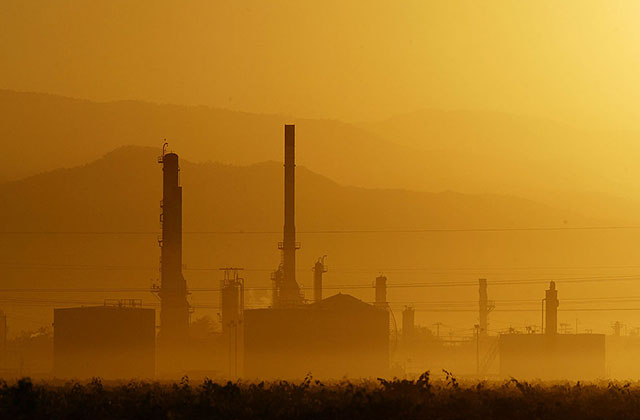The U.S. Supreme Court announced today (June 26) that they refuse to hear a case that could have reinstated a loophole in the Clean Air Act used by the fossil fuel industry.
The loophole allowed polluters to violate emission limits whenever their equipment would malfunction. Former President Bill Clinton first enacted the startup, shutdown and malfunction (SSM) exemption to the Clean Air Act in 1994 during his presidency, with former President George W. Bush adding to the provision from 2003 to 2007.
Environmental groups (including the Environmental Integrity Project and Earthjustice) opposed these changes since the beginning. Environmental law firm Earthjustice eventually represented five environmental groups and took the federal agency to court over the rule—and won. In 2008, the U.S. Court of Appeals for the District of Columbia Circuit voted 2 to 1 to strike down this exemption.
In 2010, the Supreme Court did, essentially, what it did today: It refused to hear the appellate court’s decision after industry intervenors in the case appealed, forcing the federal government to close the loophole. While former President Barack Obama began to repeal some of these exemptions, some 40 out of 125 are still in place.
What follows is a near-identical case, says James Pew, the Earthjustice attorney that worked on the previous litigation. This time, however, the plaintiffs weren’t environmental groups; they were industry groups.
American Municipal Power Inc. was the only one of about 20 companies and trade associations to appeal to the Supreme Court after the U.S. Court of Appeals for the District of Columbia Circuit rejected the industry challenge. They wanted the loophole back.
This ends the legal battle for these loopholes—for now. As Pew told Colorlines in a phone interview, these industry groups have the financial resources and lawyers to try again. If they do, they’d be threatening the health of communities—many of which are poor and made up of people of color—that live near power plants and refineries and have to deal with the pollution these sites emit during so-called “malfunctions.”
“If the court had taken this up and said that the EPA did have to provide a loophole, that would have made just about all the limits on fossil fuel pollution unenforceable," Pew says. "You’re kind of useless in protecting people because the plants and refineries could just violate the standards and say, ‘Oh it was a malfunction,’ and they wouldn’t be liable.”
In fact, the Environmental Integrity Project, which tracks enforcement of environmental law, released a report last year that showed 679 facilities in Texas released more than 68 million pounds of “illegal air pollution” during 3,421 incidents of breakdowns and incidents in 2015.
The report, “Breakdowns in Air Quality,” highlights the pollution the oil and gas industry emits during these malfunctions. “While some of these malfunctions may be unavoidable, many breakdowns are the result of operator errors, poor plant design and a lack of preventive maintenance,” the press release reads.
“When these malfunctions occur,” says Pew, “pollution goes way up.” Latinx communities in Houston, Texas, have become accustomed to shelter-in-place lockdowns where they have to stay inside and close their windows and doors to avoid the dangerous pollution outside.
Now, with this protection staying in place, these residents should (hopefully) see these alerts less frequently.
